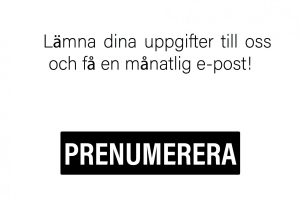When Climate Change Intersects Crime – 10 February -10 November 2022
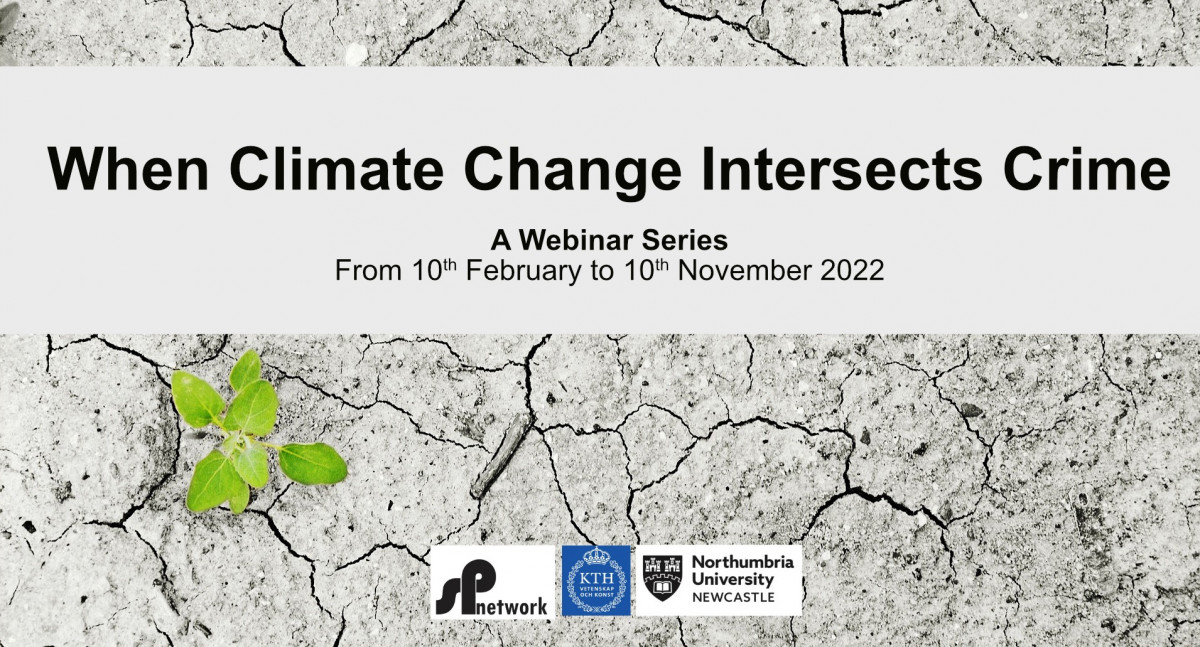
When Climate Change Intersects Crime
A Webinar Series from 10th February to 10th November 2022
The signs of climate change as a result of global warming are all around us. The causes of global warming stem from the burning of fossil fuels and deforestation but what are the drivers of these intertwined processes of consumption and destruction? Research shows that as climate change continues to impact agriculture and access to food, calls from nations of the Global North for increased food security are leading to new forms of exploitation of resources in countries of the Global South. Droughts, floods, hurricanes may not generate only new conflicts but also exacerbate existing ones as places characterized by violence are the least able to tolerate these climate shocks. Migration to big cities is adding pressure to already troubled areas, making people more susceptible to violence while others are forced on dangerous paths beyond national borders. Climate change seems to be one of the major forces driving violence and conflicts but is this the case? Who is most responsible for climate change and who are the groups most affected by it? Is climate change itself a crime and in the future, will crime become a coping mechanism to climate change? What needs to be done to mitigate and adapt to climate change? This webinar series aims at offering reflections of the most renowned experts in contemporary green criminology on these questions and opening an arena for discussion for an interdisciplinary audience.
The series is composed of six webinars organized by Safeplaces network, KTH The Royal Institute of Technology in Stockholm, Sweden and the Department of Social Sciences of Northumbria University, in the UK. The hosts of the seminar series are Prof Vania Ceccato and Prof Tanya Wyatt.
Coming lectures
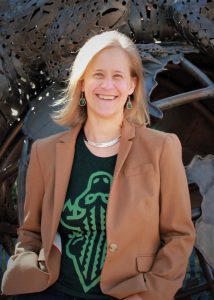
Jessica Kahler – Assistant Professor, Department of Sociology and Criminology & Law, University of Florida, USA
15th September – 17:30 CET
When climate change intersects crime: “Climate change and wildlife crime in social-ecological systems: A conceptual framework and examples from the Global South”
Abstract Two of the greatest threats to biodiversity and sustainable development are climate change and wildlife crime, which are interrelated in complex ways with implications for human and wildlife security. However, the mechanisms driving these interactions are not well understood because relevant research is mainly disparate. To address this gap, we propose a conceptual framework that draws on four existing climate change literatures in criminology, geography, sociology, and wildlife ecology and conservation. We apply our framework to a case study in Namibia, exploring the associated probability of farmers using poisons to respond to carnivore depredation in this climate change-affected socio-ecological system experiencing slow-onset stressors. Our framework reveals novel insights, such as feedback between the vulnerability of natural and human systems, and motivations to poach, and facilitates a more nuanced discourse and policy response associated with climate change victimization and environmental offenders.

Stephen Burrell – Leverhulme Early Career, Department of Sociology, Durham University, UK
20th October – 17:30 CET
When climate change intersects crime: “Masculinity in the Anthropocene:When climate change intersects with gender and violence”
Abstract The climate crisis has numerous connections with violence. Its consequences, such as increasing natural disasters, often appear to be exacerbating different forms of violence. Global heating can itself be seen as a form of violence, by human societies against the planet. These processes are substantially shaped by gender as well as other structures of power, not least in that men and masculinities are playing a disproportionate role in contributing to them. There are also potentially lessons to be learnt from violence prevention work which can be applied to tackling the climate crisis, and vice versa – such as how to reduce the influence of gendered expectations to open up possibilities for more peaceful ways of being. This webinar will discuss an ongoing research project exploring these interconnections, and consider how to engage men and boys in shifting their relationships with the environment as part of efforts to address global heating.
Speakers February to May
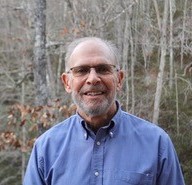
Kick-off with Prof Robert Agnew, 10th February – 17:30 CET
When climate change intersects crime: “The Impact of Climate Change on Crime”
Dire forecast: A theoretical model of the impact of climate change on crime
Abstract After providing an overview of climate change and its effects, this presentation draws on the leading crime theories to discuss the impact of climate change on crime. It is argued that climate change will increase strain or stress, reduce social control, weaken social support, foster beliefs favorable to crime, contribute to traits conducive to crime, increase certain opportunities for crime, and create social conflict. Limited research in support of these arguments is discussed. An overall model of climate change and crime is then presented. Even though neglected by criminologists, there is reason to believe that climate change may become the major force driving crime as the century progresses.
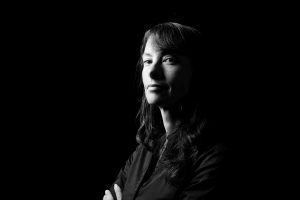
Prof Tanya Wyatt, 31st March – 17:30 CET
When climate change intersects crime: “Deforestation – from fashion to food to furniture”
Abstract The loss of forests is one of the main contributors to climate change. The drivers behind this loss are a complex mix of harmful consumption that crisscrosses the globe. This presentation outlines the causes and consequences of deforestation as well as the actors and forces behind it. Grounded in green criminology combined with other critical criminologies, the case is made for a move to regeneration rather than sustainability and adopting Earth Jurisprudence as a legal guiding framework.

Prof Rob White, 5th May – 17:30 CET
When climate change intersects crime: “Ecocide, Carbon Criminals and Climate Justice”
Abstract The cataclysmic consequences of climate change and biodiversity loss are revealed in the climate disruptions and escalating extinction of species around the globe. The causes of global warming are directly associated with carbon emissions, the result of the fossil fuel industry and deforestation. Species extinction stems from unfettered resource extraction, and the contamination and modification of Nature linked to the growth imperatives of global capitalism. These are crimes of ecocide, crimes that involve foreknowledge, government-provided legitimacy, and unprecedented harms to humans, ecosystems and non-human environmental entities such as rivers, mountains, trees, birds and koalas. From the point of view of criminology, the offenders ought to be held to account and victims recognized and compensated. How best to bring carbon criminals and environmental vandals to justice is, however, the crucial question of our age. As with crimes of the powerful generally, there are profound difficulties in dealing with corporate criminality and state-corporate crime. And yet, climate justice demands nothing less than a transformative change in circumstance – our future depends on it.

